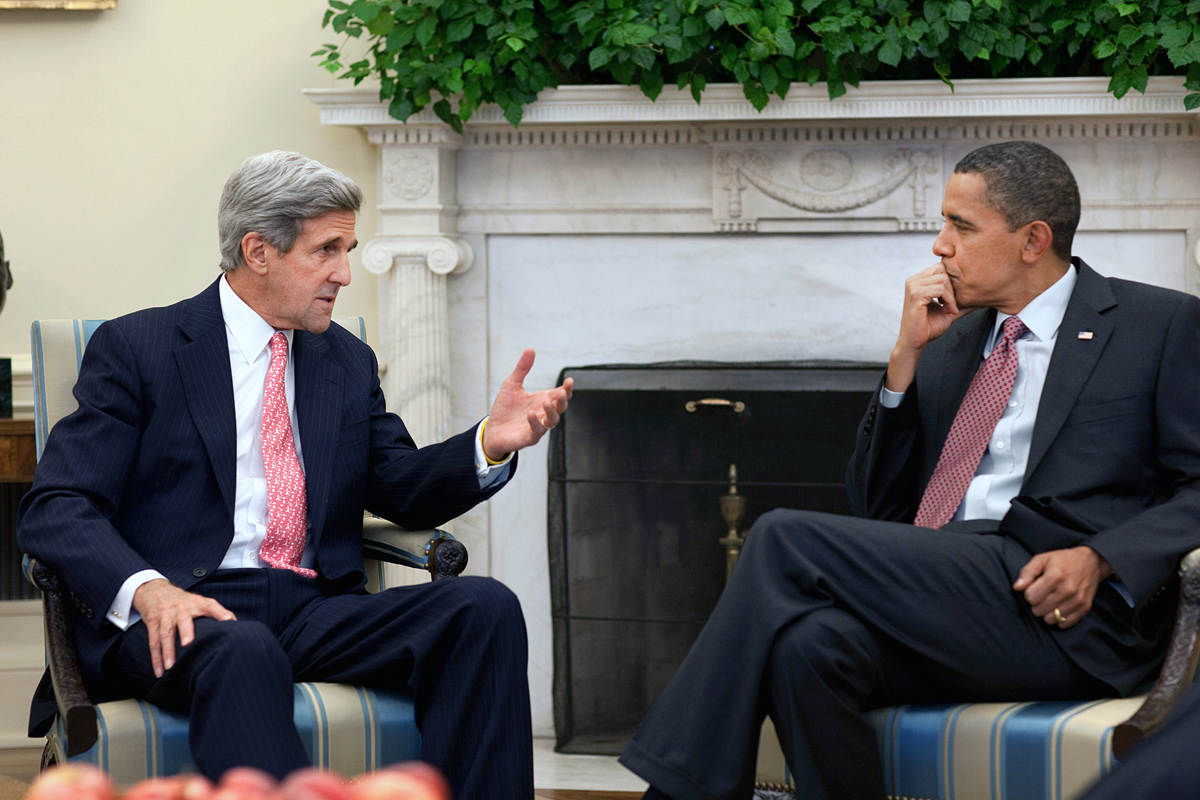(NationalSecurity.news) In what is likely to trigger further suspicion of President Obama’s motives, the White House is engaged in taking additional steps to aid and placate Iran far beyond stated U.S. commitments under the nuclear accord agreed upon last summer, say experts who gave testimony earlier this week on Capitol Hill.
Noting that the administration is getting “dangerously close to becoming Iran’s trade promotion and business development authority,” the White House has undertaken efforts to boost Iran’s overall economy and rebuild its financial sector, which were never required under the agreement, experts who provided testimony told the Washington Free Beacon.
In testimony before the Senate Banking Committee, experts said the administration sought to soothe relations with Iran as it threatened to walk away from the deal, thus spurring accusations that Tehran is “blackmailing” the White House, sources told the news web site.
Since the nuclear deal was implemented, “the Obama administration has missed the opportunity to push back against Iran’s legitimization campaign,” according to written testimony submitted to the Senate committee by Mark Dubowitz, executive director of the Foundation for Defense of Democracies. “Instead of insisting on an end to Iran’s continuing malign activities, the administration is now dangerously close to becoming Iran’s trade promotion and business development authority.”
Such actions “go beyond” what the White House says it committed to under the deal, Dobowitz noted.
The administration has made other concessions to Iran as well since supposedly finalizing the deal, which include looking the other way as Iran continues to test ballistic missiles and providing Tehran access to the U.S. dollar.
The continued concessions have spurred congressional investigations as well as accusations that Congress and the American people were misled intentionally about the agreement’s details.
The WFB reported further:
The White House has also pursued an aggressive push to force U.S. states to drop sanctions and divestment campaigns targeting Iran. While the nuclear deal requires the administration to encourage such behavior, some have questioned the White House tactics, which have been described as bullying.
“The administration’s actions to date raise serious questions,” Dubowitz said. “Will the White House try to force individual states to lift their divestment measures, even as the termination criteria for the legislation have not been met? Congress should pay particular attention to any actions by the federal government that go beyond simply informing states and local authorities about the nuclear deal.”
In yet another example of the White House going beyond its commitments, senior administration officials including Secretary of State John Kerry have begun touring Europe to encourage business with Iran.
Omri Ceren, managing director of The Israel Project, which has worked closely with Congress on the Iran issue, told the Free Beacon that the administration will likely make further concessions to Iran.
“No one is really surprised that the Iranians are blackmailing the United States for ever-more concessions,” Ceren said. “That was inevitable.”
“What’s striking, even to policy analysts who closely track the Iran debate, is how no one on any side is bothering to keep up pretenses,” he noted further. “The Iranians threatened to walk away from the nuclear deal unless they got more relief, and so Secretary Kerry and his colleagues launched global tours to drum up business for Tehran, even though U.S. law forbids Americans from facilitating overseas transactions for Iran.”
More:
- Iran shows off third underground missile silo as ICBM development continues
- Hezbollah, Iran have received advanced Russian-made air defense systems
- Is Iran capable of sinking a U.S. aircraft carrier?
NationalSecurity.news is part of the USA Features Media network. Check out ALL our daily headlines here.



